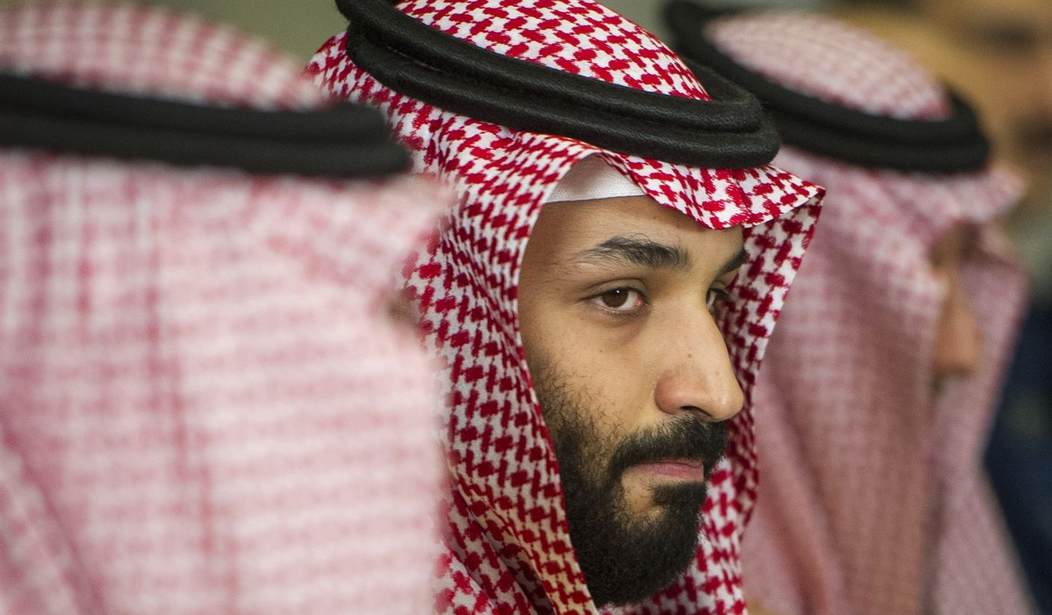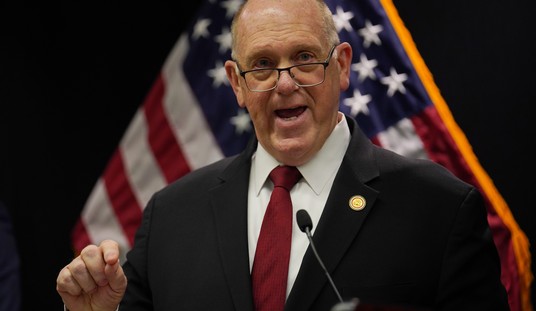Earlier today, I noted that the Saudis have signaled unhappiness with the Biden administration’s pursuit of a deal with Iran by opening up to China. The Wall Street Journal reports that the Saudis may have a bigger signal in mind than first thought. Rather than stick to the dollar for its oil exports, the Saudis have begun negotiating with Beijing on a deal that would allow China to use its yuan instead — an opening gambit that could put a big dent in the dollar’s standing as a reserve currency:
Saudi Arabia is in active talks with Beijing to price some of its oil sales to China in yuan, people familiar with the matter said, a move that would dent the U.S. dollar’s dominance of the global petroleum market and mark another shift by the world’s top crude exporter toward Asia.
The talks with China over yuan-priced oil contracts have been off and on for six years but have accelerated this year as the Saudis have grown increasingly unhappy with decades-old U.S. security commitments to defend the kingdom, the people said.
The Saudis are angry over the U.S.’s lack of support for their intervention in the Yemen civil war, and over the Biden administration’s attempt to strike a deal with Iran over its nuclear program. Saudi officials have said they were shocked by the precipitous U.S. withdrawal from Afghanistan last year.
China buys more than 25% of the oil that Saudi Arabia exports. If priced in yuan, those sales would boost the standing of China’s currency. The Saudis are also considering including yuan-denominated futures contracts, known as the petroyuan, in the pricing model of Saudi Arabian Oil Co. , known as Aramco.
It would be a profound shift for Saudi Arabia to price even some of its roughly 6.2 million barrels of day of crude exports in anything other than dollars. The majority of global oil sales—around 80%—are done in dollars, and the Saudis have traded oil exclusively in dollars since 1974, in a deal with the Nixon administration that included security guarantees for the kingdom.
This isn’t an energy problem, so it can’t be fixed by rapidly increasing American production — at least not directly. This is a diplomatic and strategic issue, one that Joe Biden’s pursuit of a renewed JCPOA deal with Iran has exacerbated, if not almost entirely created. The Obama administration also bent toward Tehran at the expense of the regional Sunni states, but the Saudis et al benefited from Donald Trump’s rejection of the JCPOA and a focus on US alliances on that side of the regional ledger.
That’s the strategic outlook from the Saudis. The strategic outlook from China is just as obvious, although an attack on the dollar would be risky for Beijing. They hold a lot of US currency in reserve, after all, and that is one way they use to manipulate the yuan. Andy Kessler predicted over the weekend that such a move might come from China and Russia, and gave WSJ a rundown of the stakes involved:
Today countries still keep America’s virtual Benjamins in their virtual bank vaults—modern banking’s gold. China has more than $1 trillion in Treasurys. Russia has about $100 billion in dollars of about $500 billion in their increasingly frozen foreign exchange.
But why do these countries keep dollars? What backs the currency? The conventional answer is the “full faith and credit” of the U.S. government. Ha, that and $3.65 will get you a Starbucks grande latte, though not in Moscow anymore. What really backs the dollar is the future tax-generating ability of America’s growing productive economy and a defense structure to defend that economy’s strength. Without that, there’s no horizontal-binding duct tape.
South Korea, Thailand, Indonesia and especially Russia learned this the hard way during currency crisis of the late 1990s. They didn’t keep enough foreign reserves to protect their own currencies after overextending credit and bank loans denominated in dollars came due. Argentina, Venezuela and Zimbabwe learned this too.
That’s a risk that China runs now in any serious attack on the dollar’s status as a reserve currency, Kessler notes:
Whatever China holds in Russian rubles has lost more than 40% of its value in mere weeks. Ouch. If Russia or other countries hold yuan, they risk a similar devaluation if, say, China gets squeezed by sanctions for invading Taiwan. China and Russia should be wary of the mutual delusion of backing only by the ruble and the yuan. And I hope Russia does load up on crypto, the decline of which may make the ’90s currency crisis seem like a picnic.
As Ben Franklin might tell today’s U.S. leaders, “You have the reserve currency status, if you can keep it.” What to do? The Federal Reserve should solidify the dollar by raising interest rates pronto.
China could decide that the strategic value of dismantling Bretton Woods outweighs the damage they could do to themselves in the short run. As for the Saudis, they might end up noting that China has been facilitating the Iran deal, as noted by Putin’s interlocutor in the talks Mikhail Ulyanov. This could just be a shot across Biden’s bow to deflect the White House from a very bad deal with the mullahs of Tehran.
One other way to strengthen the dollar, apart from Kessler’s suggestions, would be to rapidly increase oil output and push more exports onto the global markets. The extra oil would perhaps push the Saudis back by undercutting their sales price and might mean less benefit to China, even if they do succeed in transitioning their imports from dollars to yuan. However, we all know what to expect from the White House and its progressive allies on this front, do we not? Sigh ….
SCOOP: House liberals to urge Biden to declare climate emergency, ban drilling on federal lands as part of a sweeping executive order plan to be released by @USProgressives this week https://t.co/eoBijpcjQc
— Joshua Siegel (@SiegelScribe) March 15, 2022








Join the conversation as a VIP Member